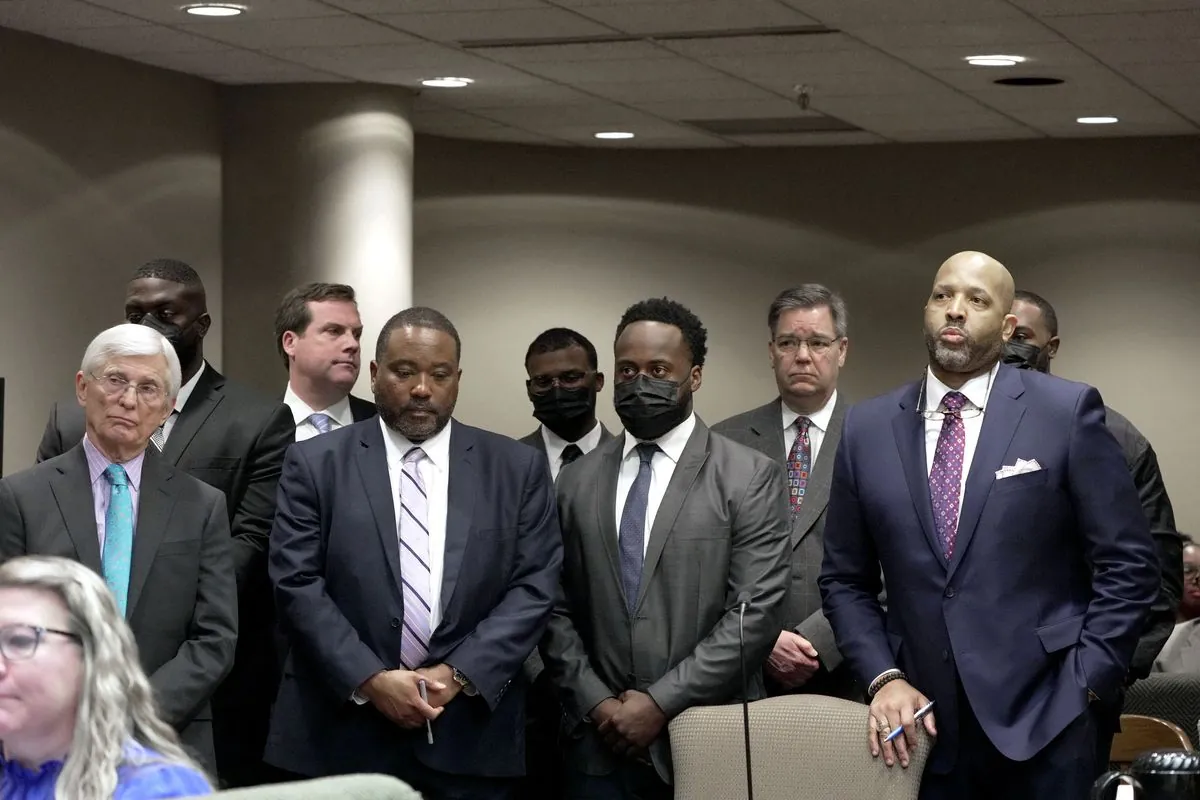In a federal trial that began five days ago in Memphis, Tennessee, three former police officers face charges related to the fatal beating of Tyre Nichols in January 2023. The case has brought renewed attention to police accountability and use of force in the city known as the "Home of the Blues."
Larnce Wright, a police lieutenant who trained the officers, testified yesterday about significant omissions in the required response-to-resistance forms submitted after the incident. Wright stated that Tadarrius Bean, Demetrius Haley, and Justin Smith failed to accurately report their use of force against Nichols, violating department policies.
The officers are accused of depriving Nichols of his rights through excessive force, failing to intervene, and obstructing justice through witness tampering. They have pleaded not guilty to these charges.
Wright's testimony revealed that the officers' reports did not mention punching or kicking Nichols, despite video evidence showing otherwise. This discrepancy has raised questions about the accuracy and completeness of police documentation in use-of-force incidents.
"Officers have the discretion to make split-second decisions in a rapidly evolving situation, such as when a person is attempting to evade arrest."
The trial has also brought to light details of police training procedures, including the use of pepper spray and various restraint techniques. Wright acknowledged that officers are trained to respond forcefully in certain situations but emphasized the importance of using appropriate tactics.
Memphis, the second-largest city in Tennessee with a population of approximately 633,000, has a complex history with law enforcement and civil rights. The city, which is home to the National Civil Rights Museum at the Lorraine Motel, has implemented various community policing initiatives over the years to address its high crime rate.
The case has drawn parallels to other instances of police brutality and has led to the disbandment of the Scorpion Unit, a specialized crime suppression team created in October 2021. All five officers involved in Nichols' death were members of this unit.
Medical evidence presented in court indicated that Nichols died from blows to the head, with an autopsy report detailing brain injuries and multiple cuts and bruises. The prosecution argued that the officers punished Nichols for fleeing a traffic stop and failed to provide timely medical assistance.
As the trial continues, it serves as a stark reminder of the ongoing challenges in policing and the critical importance of accurate reporting and accountability in law enforcement agencies. The outcome of this case could have significant implications for police reform efforts not only in Memphis but across the United States.
